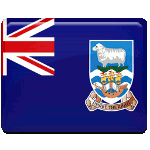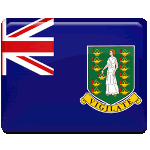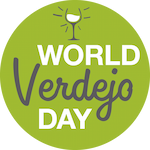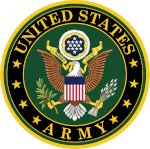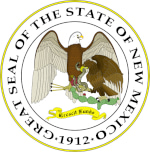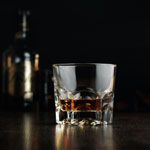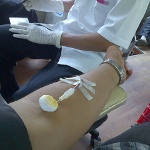Holidays Calendar for June 14, 2019
June 14 is Liberation Day in the Falkland Islands. This public holiday commemorates the end of the occupation of the archipelago by Argentina in 1982.
In many British Overseas Territories, the official birthday of the monarch of the United Kingdom is a public holiday. However, their dates of celebration may differ from the date in the UK. For example, in the British Virgin Islands, the King’s Official Birthday is typically observed on the Friday before the second Saturday of June.
International Weblogger’s Day, also known as InWeDay, is celebrated on June 14 every year. This unofficial holiday was created to bring together bloggers from around the world and to promote blogging as a way to express yourself and engage in dialogue with people from different countries and backgrounds.
June 14 is a perfect day to take a long relaxing bath because it is International Bath Day. This holiday is about more than just enjoying a bath; one of its goals is to remind people that it’s simple pleasures like a soak in a fragrant bath after a hard day that keep us going.
Wine lovers around the globe celebrate World Verdejo Day on the second Friday of June every year. This holiday was created to celebrate a wine grape variety that is primarily grown in the Rueda region of Spain.
National Skunk Day is observed annually on June 14. The holiday was created to celebrate these often-misunderstood American mammals and dispel negative stereotypes about them.
The second Friday of June is a perfect day to pop some corn, put away all gadgets, curl up on the couch and watch your favorite movies because it is National Movie Night. This amazing holiday was created to encourage people to revive old movie night traditions and create new ones.
June 14 is Flag Day in the USA. This holiday commemorates the adoption of the flag of the U.S. by the Continental Congress in 1777.
June 14 is Memorial Day for the Victims of Repression in Armenia. This remembrance day was proposed by the Armenian Revolutionary Front (Dashnaktsutyun), an Armenia socialist and nationalist political party.
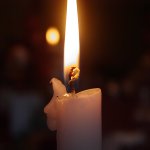 Anniversaries and Memorial Days →
Latvia,
Estonia,
Lithuania
Anniversaries and Memorial Days →
Latvia,
Estonia,
Lithuania
Day of Mourning in the Baltic Countries
June 14 is an official day of mourning in the Baltic countries (Latvia, Lithuania and Estonia). This day was set aside for remembrance of those who were exiled to Siberia as part of Soviet repressions in the Baltic states.
 Anniversaries and Memorial Days →
Poland
Anniversaries and Memorial Days →
Poland
National Day of Remembrance for the Victims of the Nazi German Concentration and Death Camps
National Day of Remembrance for the Victims of the Nazi German Concentration and Death Camps (Narodowy Dzień Pamięci Ofiar Niemieckich Nazistowskich Obozów Koncentracyjnych i Obozów Zagłady) is a solemn remembrance day in Poland observed on June 14. It is normally a working day unless it falls on a weekend or coincides with Corpus Christi, which is a public holiday.
The United States Army celebrates its birthday on June 14. Although it is not an official observance, the U.S. Army’s birthday is marked with various events, such as Army Balls, picnics, sporting events, etc.
National New Mexico Day is celebrated annually on June 14. Although it recognizes New Mexico as the 47th state to join the Union, it does not coincide with the state’s anniversary of admission.
June 14 is National Strawberry Shortcake Day. Traditionally, a strawberry shortcake is a sweet biscuit paired with fresh strawberries and whipped cream. This is one of the easiest and most delicious summer treats.
If you’re a fan of fine liquor, don’t forget to celebrate National Bourbon Day on June 14. This unofficial holiday is dedicated to the drink that is immediately associated with the United States just like Scotch whisky is associated with Scotland, cognac with France or sake with Japan.
National Cucumber Day, celebrated annually on June 14, is a great excuse to munch on fresh cucumbers all day long. This holiday was created to celebrate one of the most popular vegetables that has an impressive range of uses and give cucumbers the attention they deserve.
World Blood Donor Day is an official global public health campaign marked by the World Health Organization on June 14 each year. It focuses on expressing gratitude to blood donors for their donations and raising awareness of the need for blood and blood products.
Festivals for June 14, 2019
- HeroesCon in Charlotte, USA
- Art Film Fest in Košice, Slovakia
- Saint Petersburg Tattoo Festival in Saint Petersburg, Russia
- Download Festival in Castle Donington, United Kingdom
- Ottawa Fringe Festival in Ottawa, Canada
- Bonnaroo Music + Arts Festival in Manchester (TN), USA
- Hollywood Fringe Festival in Los Angeles, USA
- Isle of Wight Festival in Newport (Isle of Wight), United Kingdom
- Les Francos de Montréal in Montreal, Canada
- Fantafestival in Rome, Italy
- Annecy International Animated Film Festival in Annecy, France
- Encounters South African International Documentary Festival in Cape Town, South Africa
- Kinotavr Film Festival in Sochi, Russia
- Encounters South African International Documentary Festival in Johannesburg, South Africa
- North by Northeast (NXNE) in Toronto, Canada
This Day in History
- 2017 A mass shooting occurred during a practice session for the annual Congressional Baseball Game in Alexandria, Virginia. Four people were shot, including then U.S. House Majority Whip Steve Scalise.
- 1995 Died: Roger Zelazny, American author of fantasy and science fiction novels, winner of 3 Nebula Awards and 6 Hugo Awards. He is best known for The Chronicles of Amber series.
- 1994 Died: Henry Mancini, American composer and conductor, best remembered for his film and television scores. He won four Academy Awards, a Golden Globe Award, and 20 Grammy Awards.
- 1989 Born: Lucy Hale, American actress and singer. Her breakthrough role was Aria Montgomery in Pretty Little Liars, for which she received global stardom and critical acclaim.
- 1988 Born: Kevin McHale, American actor, singer, and podcaster, best known for playing the role of Artie Abrams in the Fox musical comedy-drama series Glee.
- 1986 Died: Alan Jay Lerner, American composer, author of some of the world's most popular and enduring works of musical theater. He is a three-time Academy Award winner and a two-time Tony Award winner.
- 1983 Born: Louis Garrel, French actor and filmmaker. He is best known for starring in The Dreamers, directed by Bernardo Bertolucci, and his collaborations with director Christophe Honoré.
- 1969 Born: Steffi Graf, German former professional tennis player. She won 22 major singles titles, the second-most in women's singles won since the start of the Open Era in 1968 and the third-most of all time.
- 1968 Died: Salvatore Quasimodo, Italian author and poet, Nobel Prize Laureate for his lyrical poetry, which with classical fire expresses the tragic experience of life in our own times.
- 1967 The People's Republic of China tested its first hydrogen bomb.
- 1966 The Vatican abolished the Index Librorum Prohibitorum (index of prohibited books) that was originally instituted in 1557. The index contained anti-clerical or lascivious books banned by the Catholic Church.
- 1962 The European Space Research Organisation was established in Paris. This organization later became the European Space Agency.
- 1961 Born: Boy George, English singer, songwriter, actor, DJ and lead singer of the English pop band Culture Club. In 2015, he received an Ivor Novello Award for Outstanding Services to British Music.
- 1949 Rhesus macaque Albert II rode a V2 rocket to an altitude of 83 mi (134 km). He became the first monkey in space.
- 1946 Born: Donald Trump, American politician, media personality, and businessman who served as the 45th and 47th president of the United States.
- 1941 The first major wave of Soviet mass deportations and murders of Estonians, Latvians and Lithuanians began.
- 1936 Died: G. K. Chesterton, English author, philosopher, Christian apologist, and literary and art critic. He is best known for creating the fictional priest-detective Father Brown.
- 1928 Born: Ernesto "Che" Guevara, Argentine Marxist revolutionary, physician, author, guerrilla leader, diplomat, and military theorist. He was a major figure of the Cuban Revolution.
- 1927 Died: Jerome K. Jerome, English author and humorist, best known for his comic travelogue Three Men in a Boat (To Say Nothing of the Dog).
- 1924 Born: James Black, Scottish pharmacologist and academic, Nobel Prize for Medicine laureate for his work leading to the development of the drugs propranolol and cimetidine.
- 1922 Born: Kevin Roche, Irish-American architect, Pritzker Prize laureate. He is best known for designing Bank of America Plaza (Atlanta) and the Central Park Zoo (New York).
- 1920 Died: Max Weber, German sociologist and economist. His ideas heavily influenced social theory, social research and the entire discipline of sociology.
- 1883 Died: Edward FitzGerald, English poet and author, most famous for his English translation of The Rubaiyat by Omar Khayyam.
- 1868 Born: Karl Landsteiner, Austrian biologist and physician, Nobel Prize laureate for the discovery of the polio virus.
- 1837 Died: Giacomo Leopardi, Italian philosopher, poet, essayist, and philologist. He is considered the greatest Italian poet of the 19th century and one of the most important figures in world literature.
- 1830 France started the colonization of Algeria. 34,000 French soldiers began their invasion of Algiers, landing 27 km west at Sidi Fredj.
- 1825 Died: Pierre Charles L'Enfant, French-American architect and engineer, best known for designing the street layout of Washington, D.C.
- 1811 Born: Harriet Beecher Stowe, American author and activist, best known for her novel Uncle Tom's Cabin, which is a depiction of life of African Americans under slavery.
- 1807 Emperor Napoleon's Grande Armée defeated the Russian Army at the Battle of Friedland in Poland (present-day Russian Kaliningrad Oblast), marking the end of the War of the Fourth Coalition.
- 1798 American clergyman Rev. Elijah Craig allegedly invented bourbon whiskey, distilled from maize. The product was named bourbon because Rev. Craig lived in Bourbon County, Kentucky.
- 1775 The Continental Congress established the Continental Army, marking the birth of the United States Armed Forces.
- 1736 Born: Charles-Augustin de Coulomb, French physicist, best known for the development of Coulomb's Law. The SI unit of electric charge, the coulomb, was named after him.
- 1645 12,000 Royalist forces were beaten by 15,000 Parliamentarian soldiers in the Battle of Naseby. This battle became decisive in the course of the English Civil War.
